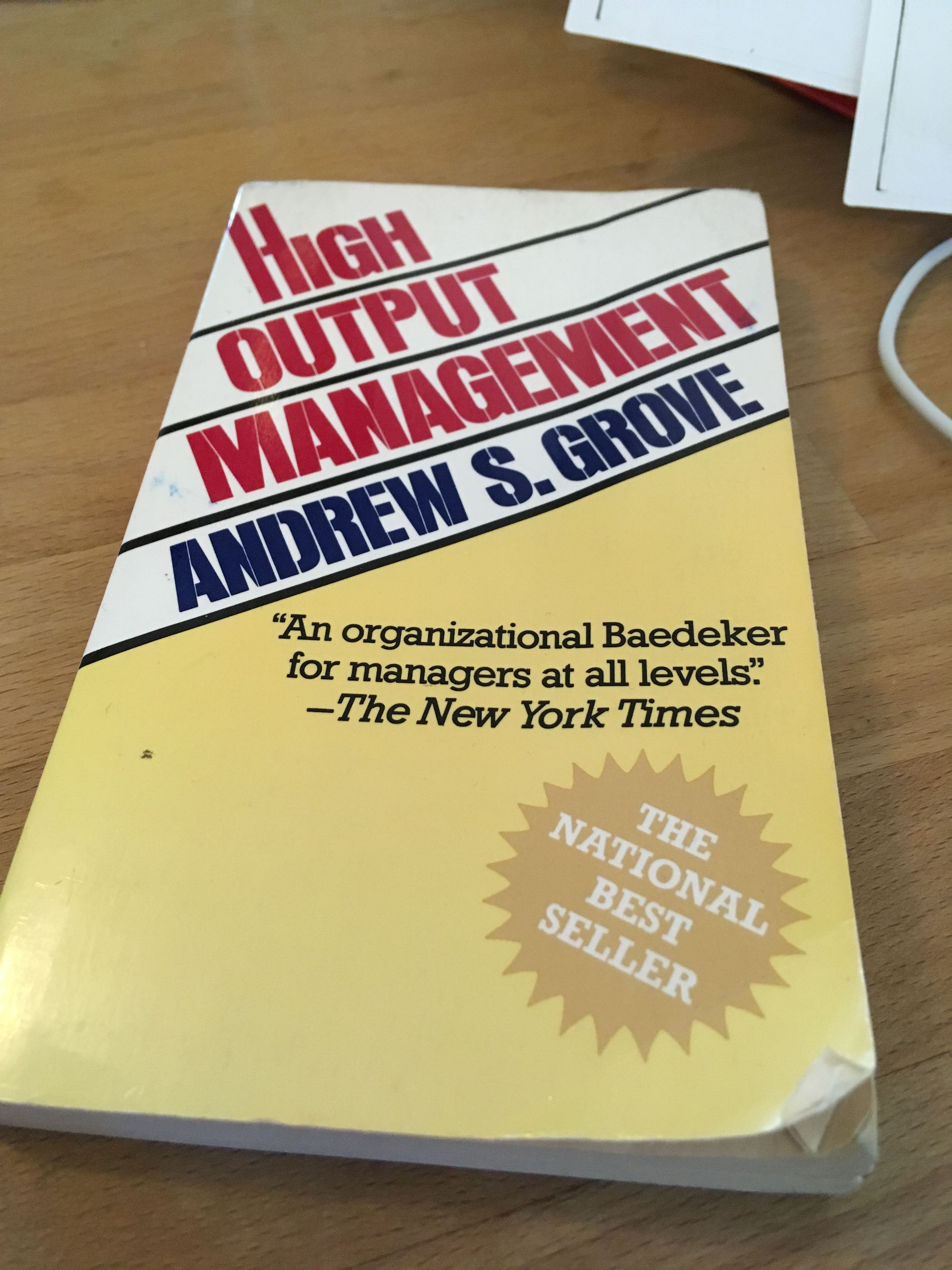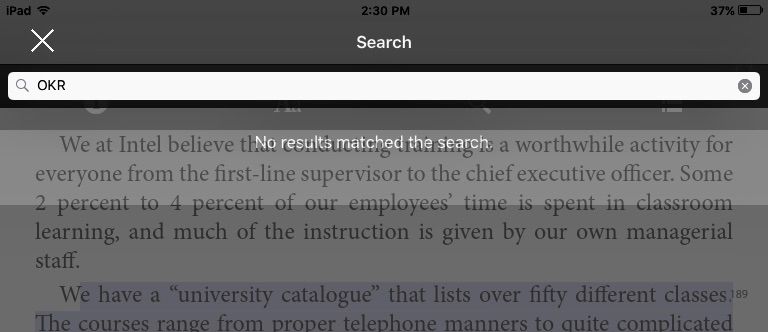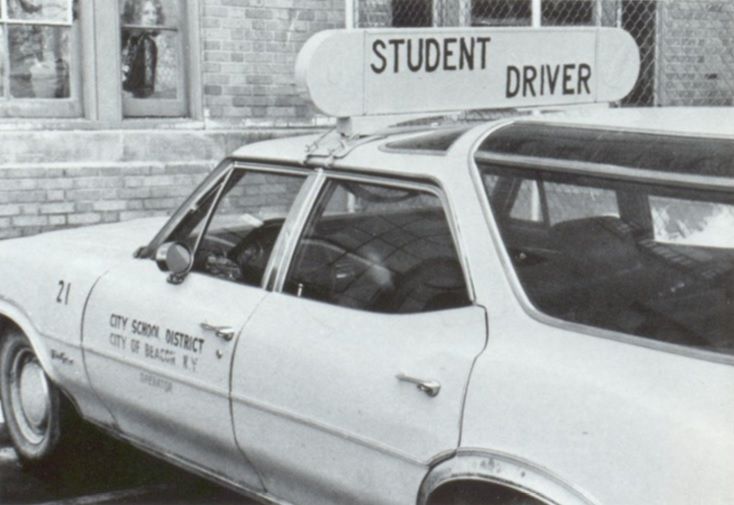I Kind of Want A Revolution: Members Only #9
(I unpaywalled this post on November 5, 2022. I made some edits, specifically deleting event invitation that's no longer relevant. Though I'm slowly unpaywalling older posts, there may be annoying links that go behind the paywall.)
This time, wrapping up my deep dive on High Output Management, some thoughts about workplace ostracism by way of hating on advice columns, and a few good links.
I’ll no longer be keeping Andy handy
To recap, I’ve been slow-reading Andrew Grove’s High Output Management, 50 pages at a time.
Now I’m done with the book, this project, and this wizened paperback will no longer be my constant companion.

The project came about because I was curious: why are people in tech reading this ancient tome? Is it useful?
High Output Management (library) was originally published in 1983. A new edition came out in 1995, and a digital-only version emerged in 2015. While I didn’t do a line-by-line comparison of all three editions, there are few notable changes.
Why should you read it? Here are my earlier thoughts:
(pp. 1-50.) (pp. 51-100.) (pp.101-150) (pp. 150-200-ish)
The last 50 pages of High Output Management address compensation and a couple of what Andy saw as difficult conversations.
Also, “Why Training is the Boss’ Job,” which was new in the 1995 edition.
A first-time manager reading these final pages may have a hard time parsing much of Grove’s advice in these last 50 pages: it’s very 80s.

Andy’s new forward to the 1995 edition nodded to the need to adapt to labor force transformations. Notably, fewer managers.
Another 20+ years have gone by. These final chapters show their age.
Compensation in 2019 is a more complex discipline. Back then, your own internal comp structures and payscales had a very heavy weight; people were likely to stay around for a while.
Today, comp practices at your competitors matter more to you.
“Two Difficult Tasks,” per Andy, are interviews and dealing with people who want to quit.
Grove describes an interview process that seems quaint, particularly for software engineers. Back in the day, interviews didn’t involve writing code or solving brain teasers, much less take home programming tests.
Dealing with someone who wanted to quit is a bit different today. Back then, you had invested in developing people’s talent — read ahead to his chapter on training — retaining them was paramount.
If you couldn’t talk someone into staying on your team, you’d try to move the quitter elsewhere in the organization.
When I saw “Two Difficult Tasks,” I thought surely one of them would be letting people go. He does not go there; my memory of those days is that, unless someone had made an irrevocable misstep, you’d prefer to move them internally.
Andy felt that training people was a manager’s highest leverage activity. He personally taught classes in Intel’s “university” — on topics like performance reviews, holding meetings, and company culture.
Today, sadly, there are fewer seasoned managers around who are qualified to do this sort of training. (Many people who could fill this role no longer have jobs.)
And organizations where the CEO wants to have a robust in-house training organization seem rare.
The book concludes with a checklist; Grove wanted readers to practice the actions they had read about.
Checklists can be useful. One like Grove’s might best be worked through in partnership with your manager, coach or a peer.
I was also motivated to read High Output Management by my cynicism about the oft-repeated assertion that Andy Grove invented the OKR.
In fact, the book’s most up-to-date version didn’t contain the acroynm.

And the term itself is only implied; as noted earlier, Grove uses the term Management by Objectives (MBO).
A successful MBO system needs only to answer two questions:
- Where do I want to go. (The answer provides the objective.)
- How will I pace myself to see if I am getting there? (The answer gives us milestones, or key results.)
Grove positions objectives and key results as components of MBOs; MBOs are simply a planning tool to complement a manager’s judgment.
All of this is about setting goals.
Grove did not invent the MBO, nor did he claim ownership for any of the management systems he describes.
The Historical Antecedents of Management by Objectives is an academic article from the 1970s, exploring whether Peter Drucker invented the MBO.
Reader, he did not.
Investor John Doerr calls Andy the Father of the OKR. Doerr learned the concept in one of Grove’s Intel training classes, as I found when skimming his recent book on OKRs.
Let’s spend a minute on OKRs.
The term “OKR” has come to be used like it’s canonical. (See also, Key Performance Indicators.)
In sifting and sorting through the morass of information on internet, I’m not sure that the OKR is a universal concept.
Or that there’s any particular process for setting OKRs that distinguishes it from other goal-setting processes.
The SaaS companies making OKR software might debate me on this. If they didn’t prefer to drown me out on the internet with SEO-friendly content marketing.
Back before the internet and SaaS, there were people writing books about MBOs. But their processes were not unique, magical, or canonical, either.
There is no special sauce, IMO.
Being a manager requires you to set and articulate goals in a crisp, clear, readily understood and easily-discussed format.
One where there is little room for dispute as to whether the goal has been met or not.
Once you’ve learned to set a goal, you’ll have a tool you can use in whatever model or format you find in an organization. (I recommend the SMART format.)
I am so sad that Andy is gone. High Output Management casts people management as a useful skill that’s worthy of developing through study and practice.
At the end of this journey, though, I still don’t know why people are reading High Output Management.
It is not today’s aspirational model. In fact, it’s nearly the exact opposite of today’s Leadership-Unicornial Complex.
It fails to represent managing people as some kind of Hero’s Journey. Or a quest to save the world. We’re solid managers when we:
- care about people’s development, and support them as they contribute to our organizations;
- stand up and teach people how to do their jobs, and show up as members of a community;
- speak clearly about what we expect, give meaningful feedback, and create incentives to meet expectations.
At this point, in my darker moments, these ideas seem almost revolutionary.
Maybe that’s why young people in tech are actually reading the book. Maybe they don’t aspire to the jobless, managerless, future that some are predicting.
A future we’re all co-creating, even at this exact very moment in time.
I’m also sad that Andy is gone, because after spending all of my time thinking about him and his book, I’d be feeling bold enough to send him a note to see if he’d agree with me.
Advice Columns Are Garbage
Advice columns continue to spark my interest. And my ire.
When your employees seek advice, can they ask someone in your organization?
Or are they googling? Writing to the internet?
Reading decades-old — or maybe not-terribly-good — management books?
I mean, let’s talk about Jamie.
I work for an investment banking firm where 90% of the employees are men. I’m the only woman on my team, and ever since I joined, my teammates have treated me like the office plant. They make lunch plans without including me and say hello and goodbye to everyone except me. Generally, they pretend I don’t exist. I don’t think they are doing it to be hurtful—I just think they’re not sure how to befriend women. What can I do to change this?
—Jamie
Social isolation is difficult and painful, and I’m very sorry about your experience. Sadly, it is difficult to change the social norms of an entire group at once. An easier path would be to change the behavior of one colleague at a time; direct interactions will help them to see you as a whole person. Why don’t you try to invite one of your co-workers for coffee or lunch every week? In time, this will change the overall atmosphere in the office.
—Famous behavioral economist and TED-talker Dan Ariely
Revenue generation has been the career booster for all women in my circle who have worked in financial services (including myself.)
Alternate advice for Jamie might be to focus on building strong client relationships.
In other words, to follow the money.
That said, if Jamie were to really bring home the bacon, people who are comfortably not performing might feel threatened. Some may act to undermine her.
So my advice may also be weaksauce.
I would love to ask Jamie what prompted her to reach out to Dan via his WSJ advice column. Which btw lives in their Life and Styles section. I’m just saying.
What’s the source of Dan’s advice? Maybe it’s his common sense — it’s what he would want to have happen in his own office.
A standard internet search yields content echoing Dan’s avuncular suggestion; people like Jamie are advised to try to change the system through their own action.
(You don’t have to search far to learn that other academics are actively studying workplace ostracism. Could Dan have phoned a friend to validate his advice?)
Coincidentally, Purl crossed my desktop this week. This short film points to the cost of ostracism at work, and the price paid by an individual who seeks to change the system.
It’s based on my experience being in animation…My first job, I was like the only woman in the room, and so in order to do the thing that I loved, I sort of became one of the guys. And then I came to Pixar, and I started to work on teams with women for the first time, and that actually made me realize how much of the female aspect of myself I had sort of buried and left behind.
Animator Kristen Lester, in Pixar’s new short stars a swearing ball of feminist yarn
Purl’s fairly sunny ending is anything but a foregone conclusion. Especially in entrenched fields like banking. (Or animation.)
There’s a pithy trope from the recovery movement, “You can’t change people, places, or things.” The point, for people in recovery, is to focus on changing themselves, first.
This phrase limited, and useful.
When seeking change, we need leverage. We also need the wisdom to know the difference between what we can change, and what we can’t.
Jamie may not have the power to effect change. Especially if much time has passed since she joined the team. Her best move might be to find another job.
We can prevent these situations on our own teams by taking more responsibility for onboarding. By being a sponsor to new employees.
When someone joins, you can set up and schedule the lunches, coffees, or other activities that tell your people that you expect them to welcome a valued new member to the team.
You can keep an eye on social interactions — you can figure out what to do when someone is left out of casual-seeming events that actually weave the fabric of your team.
And you can give people sources for help and support that are better than an advice column, or the internet.
Real human sources are better, even, than a newsletter written by someone who is experienced and well-meaning.
Perks

I offer 45 minute appointment slots to On Management Supporters. (When I unpaywalled the post, I deleted some outdated info and my calendar link.)
Links
- “What to Do When a Colleague Excludes You,” by Sandra L. Robinson and Kira Schabram at HBR benefits from suggestions about taking a broad perspective, and tapping your network, rather than trying to solve things on your own.
- How to build a better network features work by Chicago Booth’s Roland Burt. When Jamie joins your organization, you have to sponsor her to and help her to ramp up her internal network.
Ignoring someone at work can be a form of bullying. And bullying has been in the news — notably, about a powerful female boss. The importance of how Amy Klobuchar treats her staff, by Jon Allsop at Columbia Journalism Review. (h/t Ashley Milne-Tyte)
On another matter, you can hear me talk about coaching on The Broad Experience, Episode 140; The Coaching Cure, Part 2. We discussed how you can qualify coaches, what’s happening in the growing coaching industry, and more.
I’ll have more to say on coaching, later on.
Many thanks for your financial contribution in support of On Management.
I’d love your questions, comments, and suggestions. Please do send me a note.
Stay warm,
Anne Libby
P.S. And yes, if you were to do a mashup of Molly Ringwald and Ally Sheedy’s wardrobes from The Breakfast Club, you’d have my 1980s leisure lewk and what I might have been wearing while reading High Output Management back in the day— which I don’t recall, but must have read…
ICYMI
- Audio Transcript: Ask (Better) Questions: Members Only
- Ask (Better) Questions: On Management #35
- The Women’s March: A Brief, Impromptu Members Only #8.5
- Burnt(Out) Offerings: Members Only #8
- Dear 2018, Thank U, Next. On Management #34

“You tell me it’s the institution, you better free your mind instead…”




